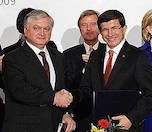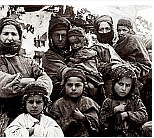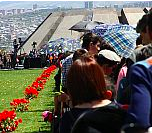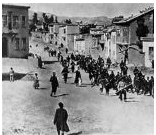How Did Armenians React to Erdoğan’s April 24 Speech?

How was Prime Minister Recep Tayyip Erdoğan’s statement about 1915 received? The President of Armenian Republic Serzh Sargsyan’s message of 24 April was also quite positive.
Most of the Armenians I spoke on the street don’t even know Erdoğan’s name. When they heard about the statement, they were shocked, making some people answer the question with a question: “But he didn’t say genocide, right?
Sargsyan: Turkey must get rid of this burden
“Today we are on the brink of the 100th anniversary of the Genocide. This date is a good opportunity to leave this historical shame behind and be rid of this heavy burden for the state’s future.
“However, I would like to clarify before the public, we do not see the Turkish nation as an enemy. We also remember the Turks who lent a hand to their Armenian neighbors as we kneel before the memory of innocent victims. We bless the memory of those who endangered themselves and their families to help our citizens.”
"But he didn’t say genocide, right?"

I asked this question to the Armenians who accepted to answer it in the walk with torches organized by Dashnaksutyun and in 24 Nisan. I’m saying “who accepted” because those who spoke, along with those who wished not to express opinions to a Turkish journalist, didn’t want the names to be written.
Morevover, the biggest motivation of those who accepted to speak was curiosity. What was a Turk doing in the Genocide Memorial? Did I know about the Genocide? These two were the most frequent questions I encountered since the walk. When my answers lightened the mood, then they started to speak.
Most of the Armenians I spoke on the street don’t know Erdoğan’s name but they knew that Turkey didn’t acknowledge the Genocide. As I told them about the statement, their reflections became either surprisingly-looking eyes or a hand gesture as if saying “come on”.
Search for Justice
For example, four men around their 20s said “But he didn’t say genocide, did he?”
During our 1 hour long conversation, I told them that this was the first time a Prime Minister of Turkey mentioning 1915, but they kept on asking me over and over again: “But he didn’t say genocide, did he?”
This question reminded me of anthropologist Harutyan Marutyan’s words. Marutyan tells the story of Armenians who lost their heritage, families, relatives and grandparents and talks about their attitude towards Turkey’s denial policy: “The search of Armenians is the search for justice. When historical facts are as clear as this and when 1.5 million Armenians were murdered, they find Turkey’s denial of history unfair. That’s why they’re fighting for justice.”
This search for justice lies under the “But he didn’t say genocide, did he?” question. Although their demands were financial compensation and return of Armenian lands at the Taşnaksutyun walk, their first request is still “Turkey must recognize the genocide and apologize from Armenians.”
"We don’t have a problem with Turkish people”
The ones who were surprised on Erdoğan’s statement are hopeful because 1915 is being talked about in Turkey. They insist on saying: “We don’t have a problem with Turkish people.”
They know that some people in Turkey recognized the genocide and are fighting for Turkish government’s recognition.
What was interesting for me is to know that most of the hopeful ones’ origins are from Turkey.
On my way to the monument I met a 60 year old woman, smiling because of Erdoğan’s statement. She says she’s happy; she doesn’t have any problems with Turkish people and was saved because of her Turkish neighbors. She believes its great news to know that Turkey is now talking about 1915. She says Armenians are only demanding for justice and adds with a smile on her face: “But he didn’t say genocide, did he?”
* This trip has been realized with Turkey - Armenia Trip Fund, a EU-supported projected coordinated by Hrant Dink Foundation and Civilitas Foundation.
* Click here to read the article in Turkish.
Hrant’s Friends on Watch at 75th Hearing
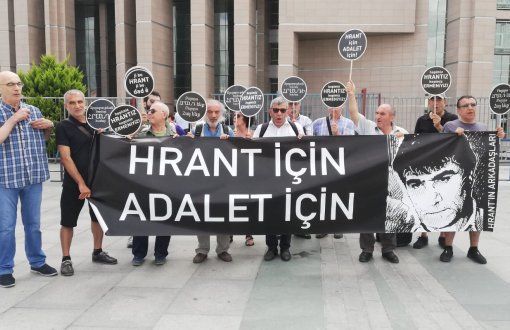
2 People Released from Prison in Hrant Dink Case

Hrant’s Friends are at Justice Watch at 72nd Hearing

Afrin Resident Blames ‘FSA’, Habertürk TV Translates as ‘YPG’
.jpg)
7th Hearing in Cumhuriyet Trial
.jpg)





